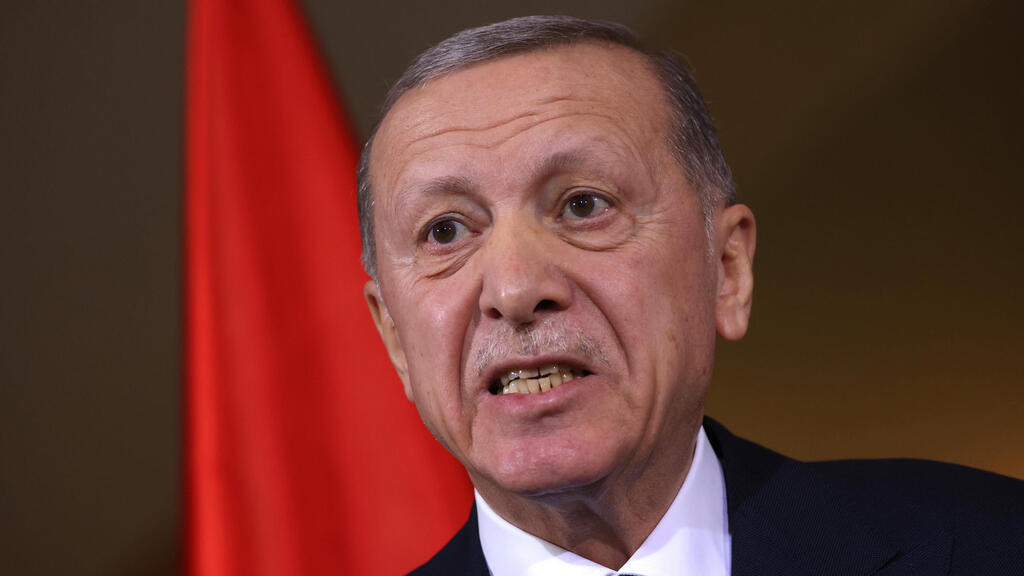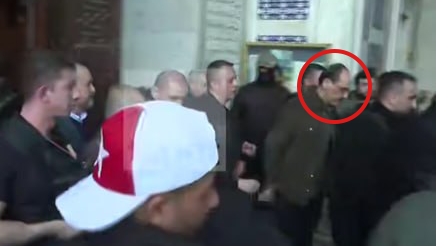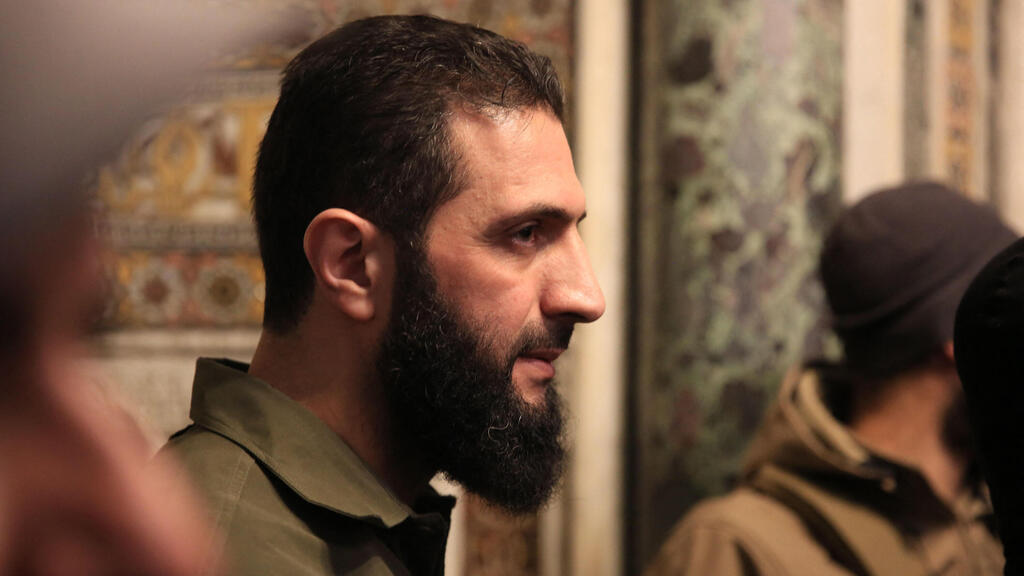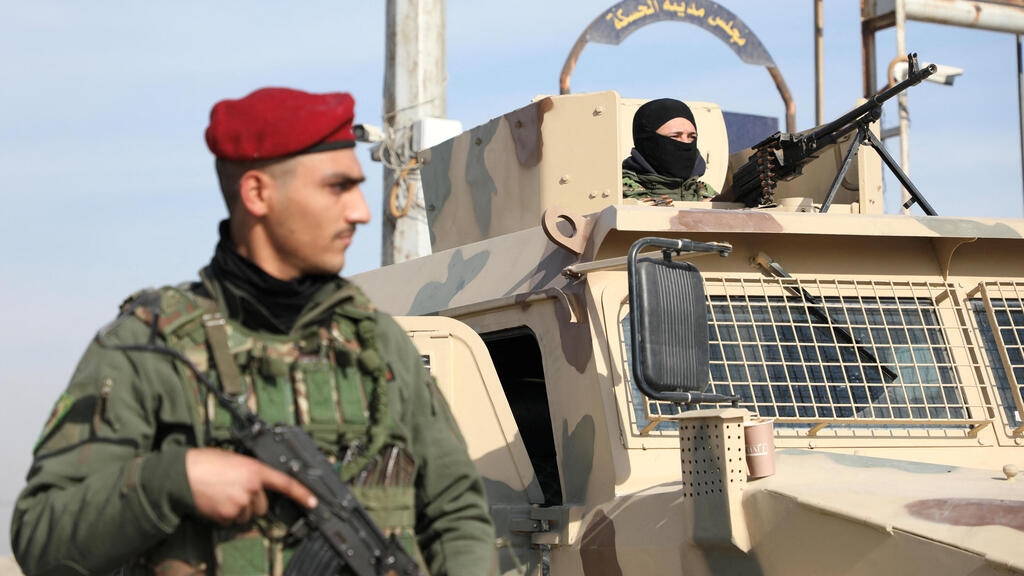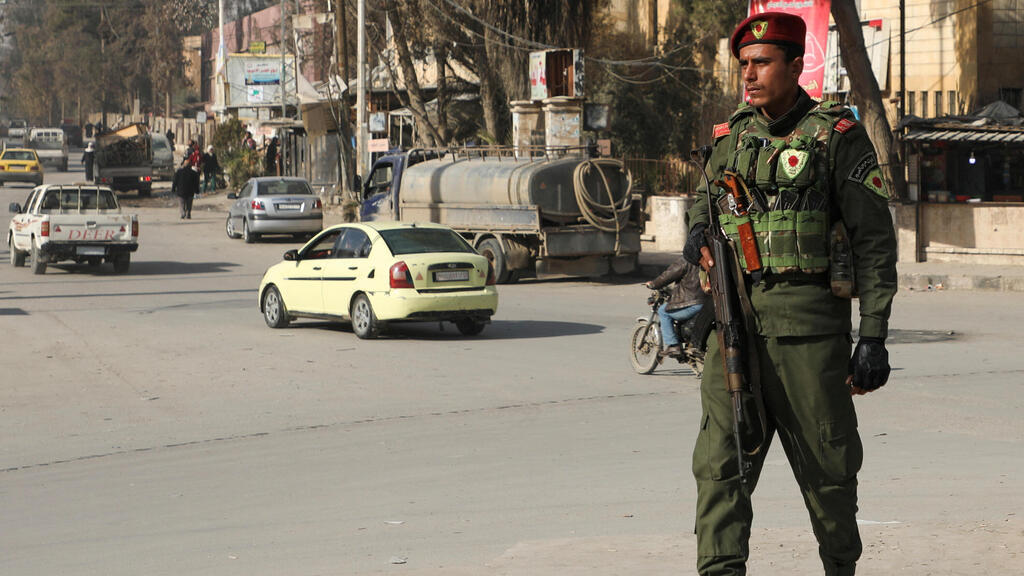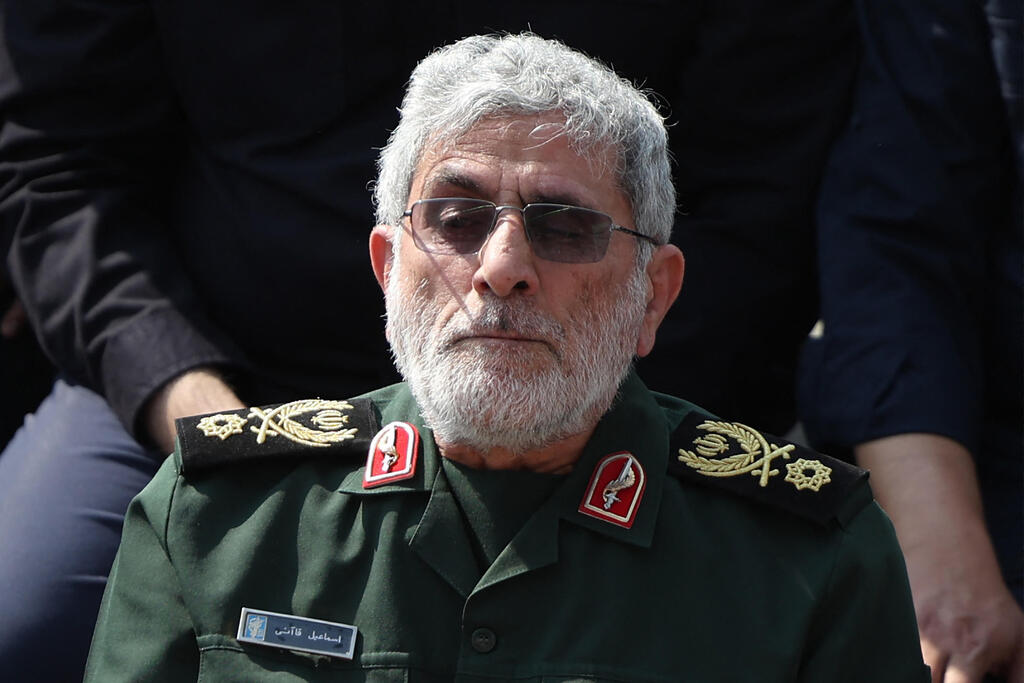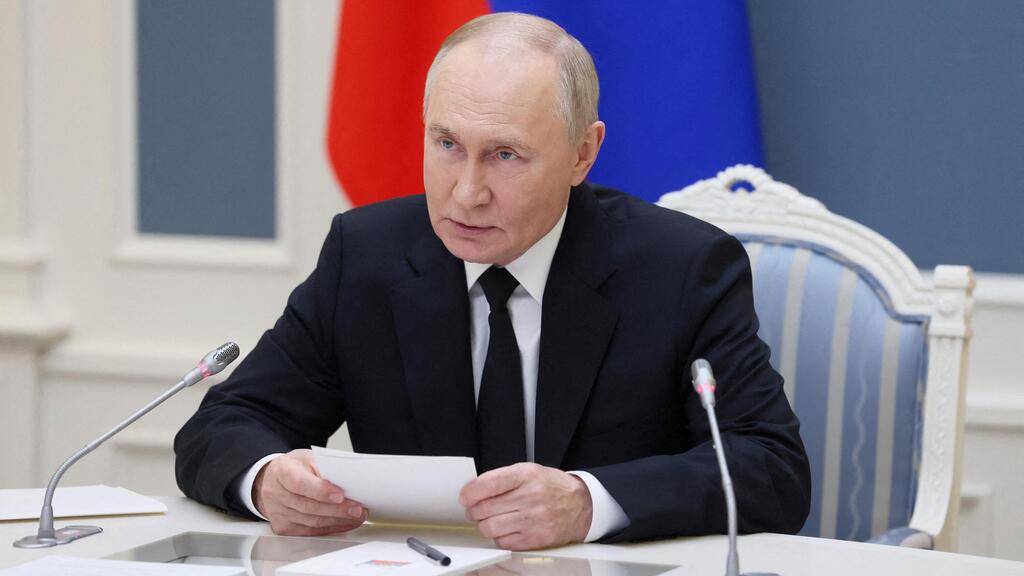Getting your Trinity Audio player ready...
Four days after the fall of Bashar Assad's regime in Syria, Turkey became the first country to send a senior official to Damascus, seemingly in a bid to quickly secure a foothold in the country’s shaping future.
Turkish intelligence chief Ibrahim Kalin was in Damascus on Thursday, two sources with knowledge of the visit said, for what the Syrian information ministry said would be talks involving its new rebel leadership.
The ministry said that Kalin and Qatar's head of state security, Khalfan al-Kaabi, arrived in the capital to meet with Syrian rebel leader Abu Mohammad al-Julani and caretaker prime minister Mohammad al-Bashir. Turkey's foreign ministry denied the Syrian ministry's additional notice that Foreign Minister Hakan Fidan was also in Damascus for talks, saying he remained in Turkey.
Fidan attended events in Ankara on Thursday including the arrival of Hungarian Prime Minister Viktor Orban, and is to meet U.S. Secretary of State Antony Blinken in Ankara on Friday. Doha did not immediately confirm that Kaabi had arrived.
The fall of Assad's regime, which dealt a blow to its patrons in Russia and Iran, has created strategic opportunities in the region for countries like Turkey, the U.S. and Israel. Throughout the 13-year civil war, Turkey, which shares a border with northern Syria, was one of the main backers of the rebels against Assad and is believed to have played a role in the recent blitz attack that toppled the regime.
A friendly regime in Damascus could advance Turkey's interests, particularly against the Kurds in northern Syria near its border, as well as in its dealings with Israel.
Kalin's visit would be the first by a senior foreign official to Damascus since rebels toppled former president Bashar Assad on Sunday, ending his family's 50-year rule in a swift takeover after 13 years of civil war. The Turkish intelligence agency MIT did not immediately comment on the visit.
Turkish news outlet Yeni Safak and broadcaster TVNet published a video of Kalin at the Umayyad Mosque in Damascus with heavy security. A Reuters reporter saw at least one car moving toward the mosque amid heavy security and large crowds but it was not immediately clear who was inside the car.
Sharaa, better known as Abu Mohammad al-Golani, leads the rebel group Hayat Tahrir al-Sham (HTS), a former affiliate of al Qaida, that spearheaded the overthrow of Assad.
Both NATO allies supported the rebels during Syria's civil war, but their interests diverged regarding one particular faction: the Syrian Democratic Forces (SDF).
Led by the Kurdish militia People's Defense Units (YPG), which Turkey considers a branch of the Kurdistan Workers' Party (PKK) terrorist group, the SDF is a key U.S. ally in its fight against the Islamic State (ISIS). With ISIS still present in eastern Syria, Blinken recently warned that the conflict could embolden the terror group.
Blinken's visit to Turkey comes after Turkish-backed rebels captured the northern city of Manbij from the SDF, which has also withdrawn from Tell Rifaat and parts of Aleppo since the rebel offensive began. Turkey also attacked YPG positions in recent days, destroying 12 missile trucks in northeastern Syria.
A Turkish official said that Syria will be the focus of Friday’s discussions between Blinken and Fidan, with Turkey ready to support a stable and secure Syria under a representative government. However, Fidan is expected to stress Turkey's sensitivities regarding northern Syria.
Diplomatic sources told Arab media outlet Asharq Al-Awsat that Turkey will demand a "clear stance" from the U.S. regarding its support for the SDF. A senior Turkish military official reiterated that "Turkey has repeatedly told the U.S. that one terror group (ISIS) cannot be eradicated by using another terror group (the Kurds)."
Meanwhile, Qatari newspaper Al-Araby Al-Jadeed reported that Iran's Quds Force commander Esmail Qaani visited Iraq to meet with leaders of pro-Iranian militias to discuss developments in Syria and ongoing Israeli strikes.
According to the report, some pro-Iranian militia leaders expressed their commitment to Iraq's neutral stance on the Syrian crisis, opting to wait and see how events unfold rather than opening new fronts.
Russia, Assad’s staunch ally throughout the conflict, announced on Thursday that it has begun direct contacts with Hay'at Tahrir al-Sham (HTS) political wing. Russian Deputy Foreign Minister Mikhail Bogdanov said that Moscow aims to maintain its military presence in western Syria to continue "fighting international terrorism."
Get the Ynetnews app on your smartphone: Google Play: https://bit.ly/4eJ37pE | Apple App Store: https://bit.ly/3ZL7iNv
Meanwhile, UN Secretary-General Antonio Guterres said he was "deeply concerned" over what he called "extensive violations of Syria's sovereignty and territorial integrity."
UN spokesperson Stephane Dujarric highlighted his alarm over "hundreds of Israeli air strikes on several locations in Syria, stressing the need the urgent need to deescalate violence on all fronts throughout the country.”



